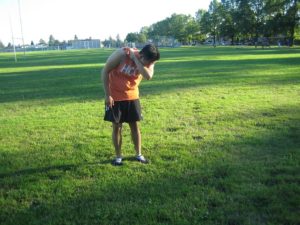Hay fever or allergic rhinitis is a common ailment with symptoms strikingly resembling the cold such as congestion, sneezing, sinus pressure and runny nose. It is triggered by an allergic response to airborne substances such as pollen. The time of the year the condition arises depends on the airborne substance the individual is allergic to.
Indications of hay fever
The symptoms of hay fever might start at different times of the year, depending on the substance the individual is allergic to. In case the individual is allergic to a common pollen, periods of its peak can cause severe symptoms.
The common symptoms of hay fever include:
- Watery eyes
Hay fever arises if the immune system wrongly identifies a harmless airborne substance as a threat. - Sneezing
- Itchy nose and throat
- Blocked or runny nose
The severe symptoms might include the following:
- Headaches
- Sweating
- Loss of taste and smell
- Itchiness that spreads from the throat up to the ears and nose
- Facial pain due to clogged sinuses
What are the causes?
Hay fever arises if the immune system wrongly identifies a harmless airborne substance as a threat. This leads to the production of an antibody specifically immunoglobulin E to attack it. Histamine is released which triggers the symptoms.
It is important to note that there are seasonal triggers for hay fever such as spores and pollen that only spread during certain months of the year such as:
- Grass pollen
- Tree pollen
- Weed pollen
- Mold spores
Management
There are various over-the-counter and prescription medications used in managing the symptoms of hay fever. Some individuals find that a combination of 2 or 3 medications work more effectively.
Antihistamine tablets or sprays
These are usually available over-the-counter and works by preventing the release of histamine. They can alleviate symptoms of itchiness, runny nose and sneezing. On the other hand, they do not work if the nose is blocked. The newer variants of antihistamines are less likely to trigger drowsiness than the older ones.
Eye drops
These work by minimizing the swelling and itchiness in the eyes and used along with other medications.
Nasal corticosteroids
These sprays work by treating the inflammation triggered by hay fever and considered safe and effective as a long-term treatment. In most cases, it can take up to a week before experiencing any significant benefits.
Oral corticosteroids
In case the symptoms are severe, the doctor might prescribe prednisone in oral form. These are given for short-term use only due to the possibility of causing muscle weakness, cataracts and osteoporosis.
Immunotherapy
Immunotherapy or allergy shots is a proven treatment in providing lasting relief for many individuals suffering from hay fever. It works by gradually desensitizing the immune system of the individual to the allergens responsible for the symptoms.

